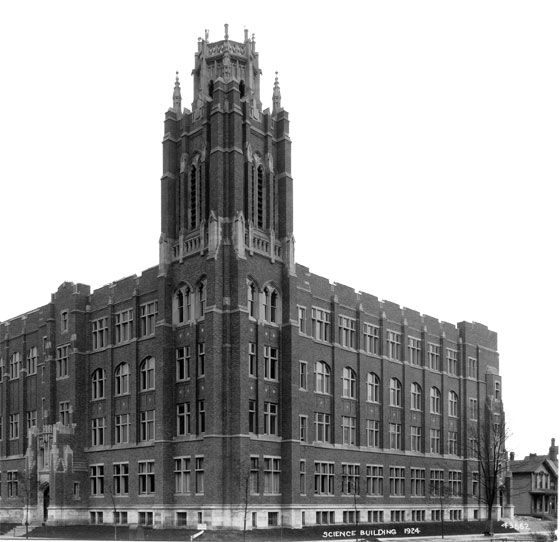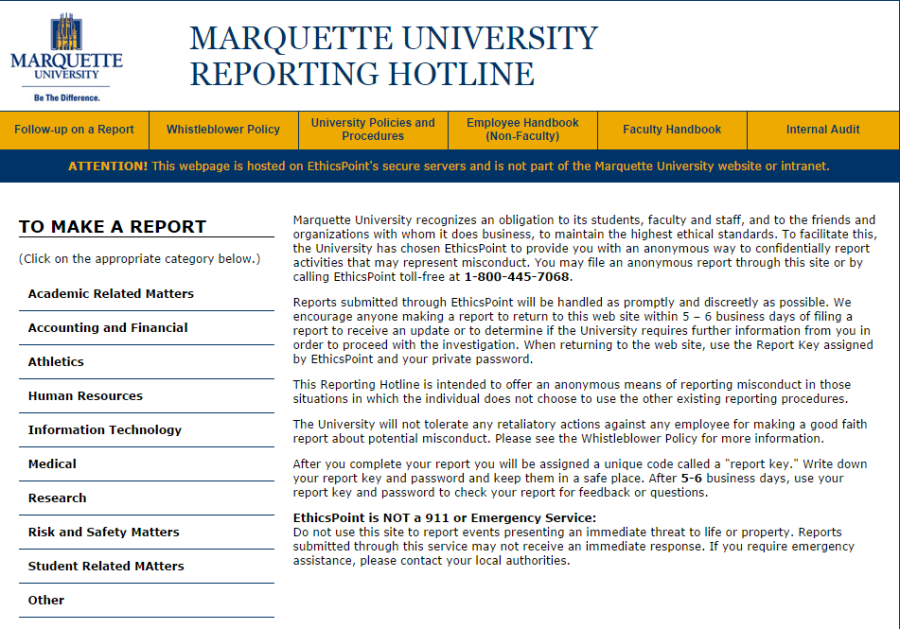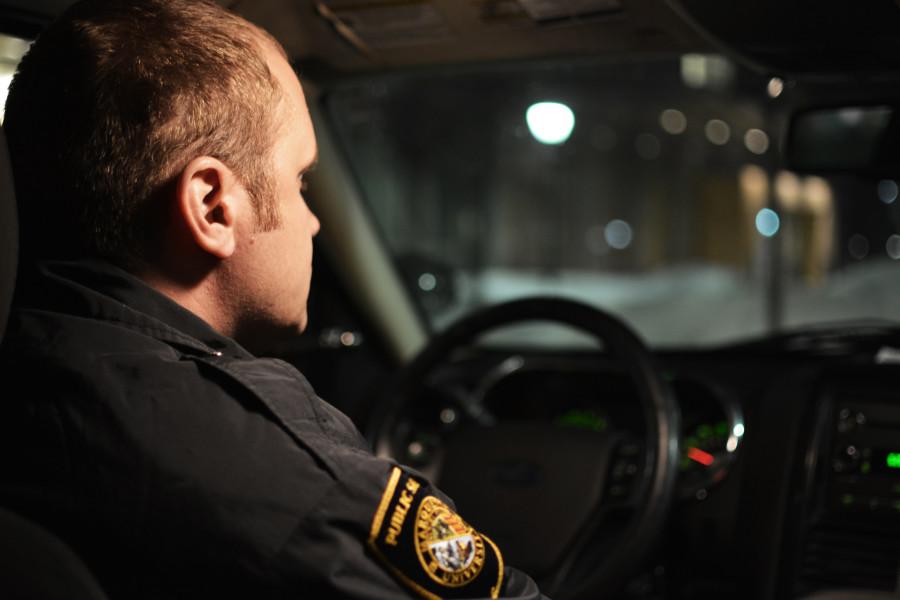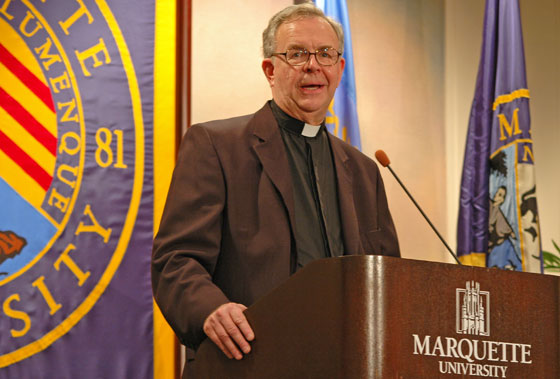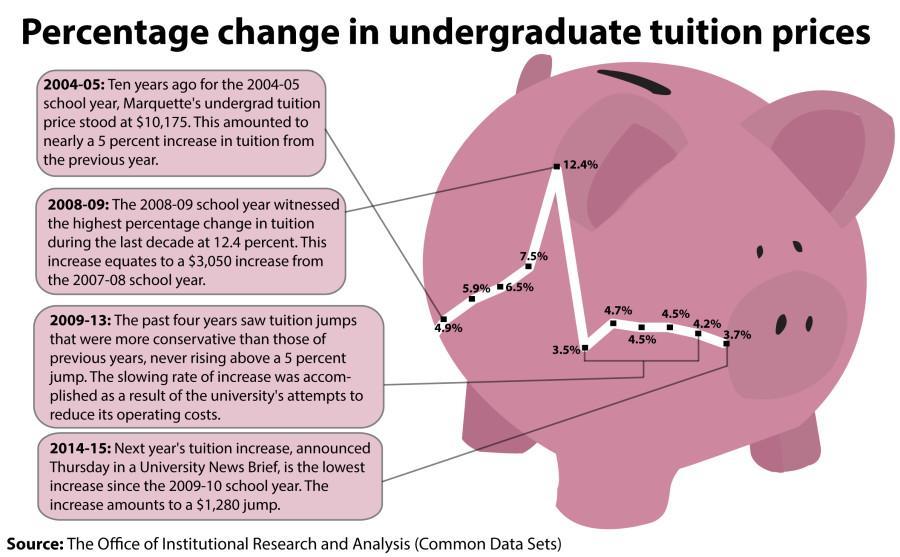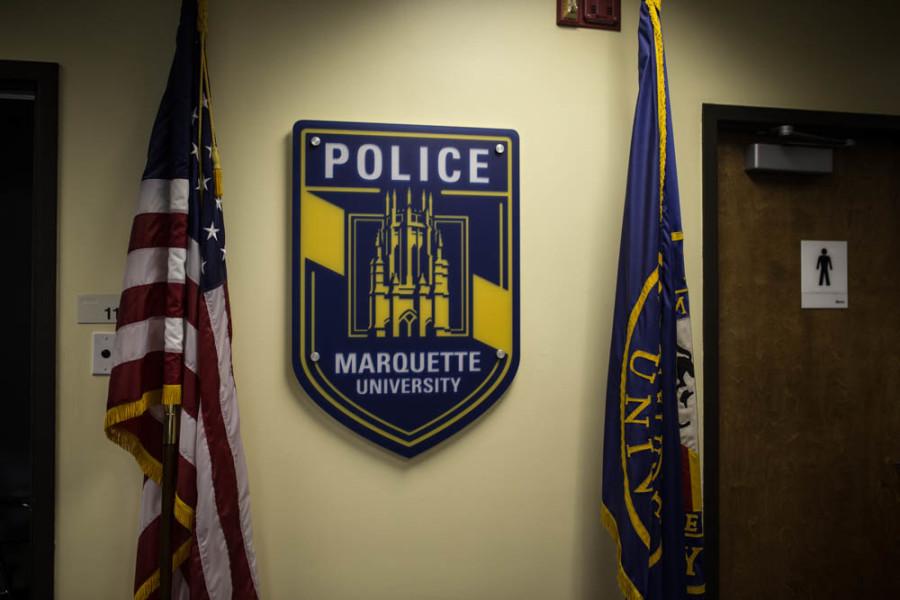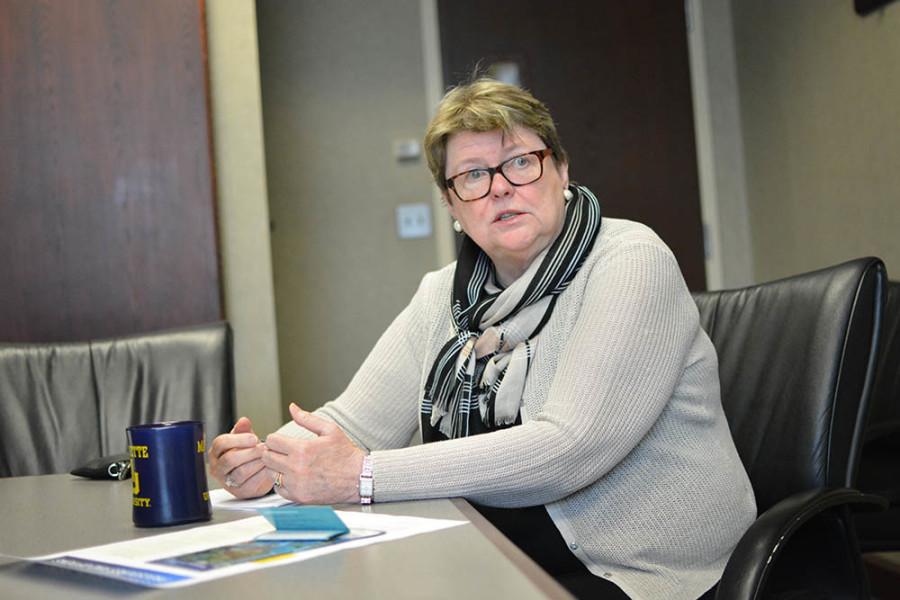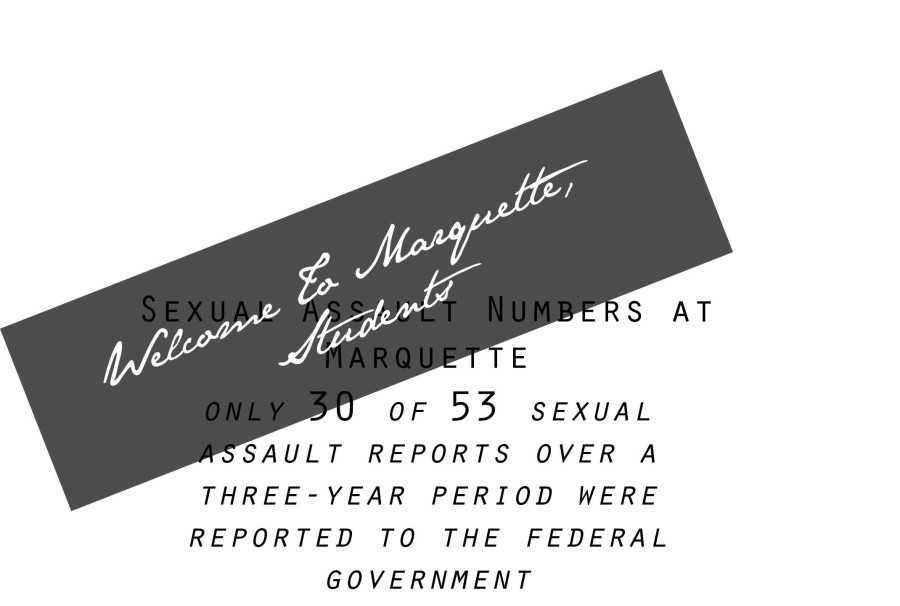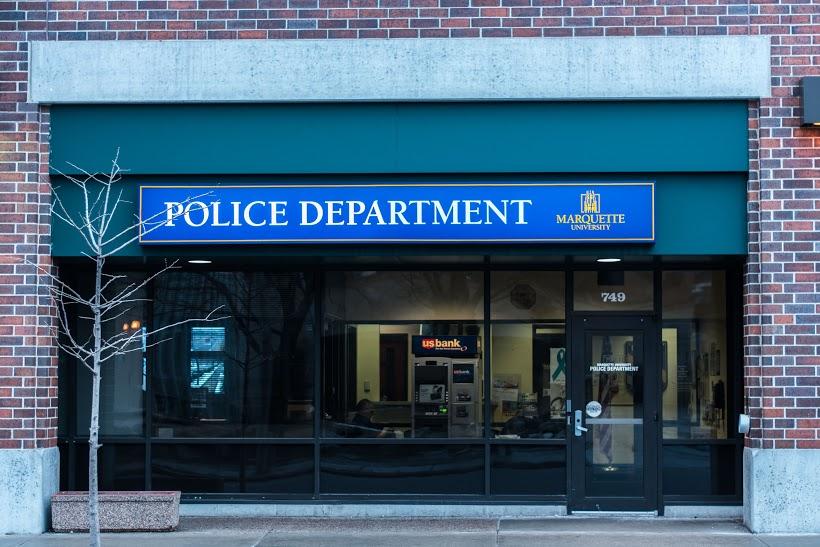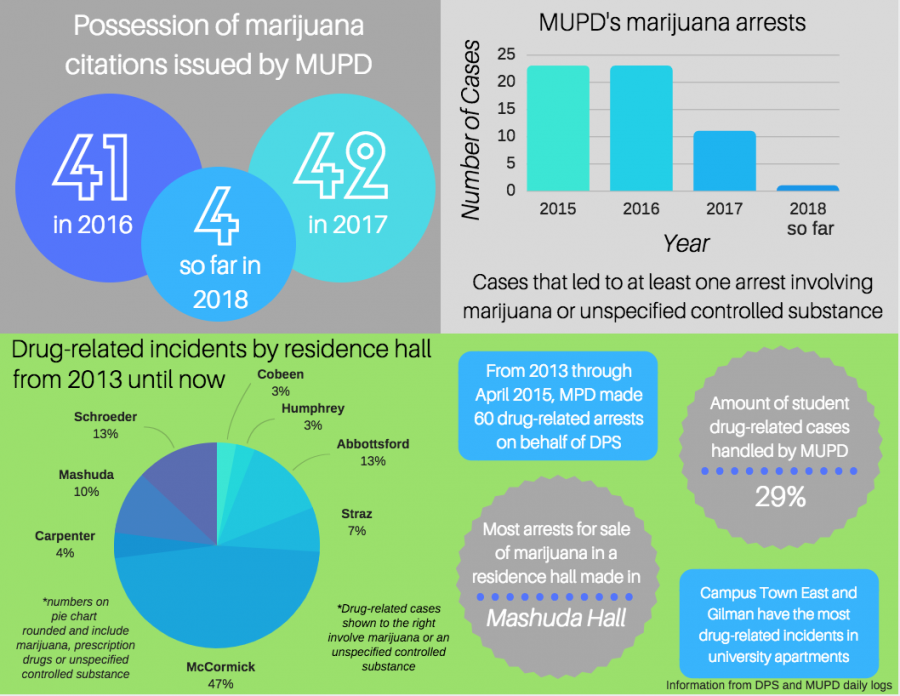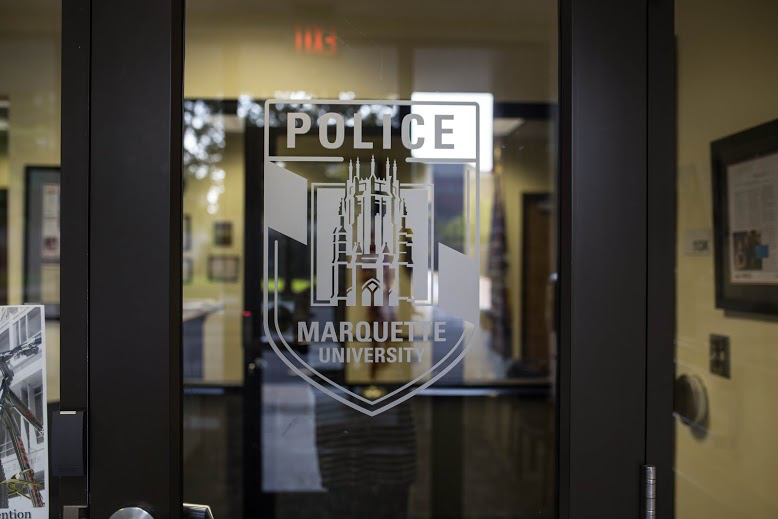Marquette ranks third among Jesuit schools when it comes to sexual assault claims, according to a report released last week by the federal Office of Postsecondary Education.
Marquette’s 20 total forcible sex offenses reported from 2010 until 2012 is behind Gonzaga University, which has 21 claims and a smaller student body size of 4,896. Fordham University came in first with 23 claims of sexual assault and an undergrad population of 8,325.
Similar universities, like Boston College with a student body of 9,100, reported 18 sex offenses. Georgetown University, College of the Holy Cross and the University of Scranton round out the list with 15, 14 and 13 claims, respectively.
The report came days before the Department of Public Safety reported on Jan. 30 and 31 two sexual assaults occurring in November 2012 and a third in January 2011.
“Sexual violence is a serious issue that impacts college students across the country,” said Andrew Brodzeller, the associate director of university communication, in an email. “Marquette is committed to providing a campus culture of mutual respect and is encouraged that students, faculty and staff are supporting that culture by reporting alleged incidents.”
Marquette made national headlines in 2010 when two female students reported they were sexually assaulted by Marquette student athletes.
Five athletes were accused of sexually assaulting three female students. University officials said all the athletes were punished for breaking the student code of conduct and team rules, but none of them were barred from competition due to the allegations.
In these incidents, DPS did not report the crimes to the Milwaukee Police Department, something that now occurs as DPS officers are required to report sex crimes to MPD.
Lt. Paul Mascari, interim associate director for DPS, said the higher number in sexual assaults compared to other school could indicate something positive.
“We know that nationally the vast majority of sexual assaults go unreported,” Mascari said. “While we don’t like to see an increase in any crime category, an increase in reported sexual assaults indicates that people are comfortable coming forward and utilizing the many resources the university has to offer.”
Brodzeller added that Marquette increased its efforts to prevent sexual assault on campus.
“The past several years Marquette has expanded our efforts to educate the campus community on how to be more proactive in preventing and addressing sexual assaults,” Brodzeller said. “These efforts are led by a Title IX team, which consists of a coordinator in the provost’s office, along with four deputy coordinators from the Division of Student Affairs, Human Resources, Intercollegiate Athletics and the Office of the Provost.”
Brodzeller also said the university is taking other measures to prevent sexual assault, including implementing mandatory sexual violence prevention training for first-year students three years ago, along with bystander intervention training.
Additionally, there were sexual assaults reported from students studying abroad, in both Italy in summer 2012 and South Africa in May 2011.
Sammi Sluder, a sophomore in the College of Business Administration, said despite the numbers in OPE report and recent incidents, she does not personally feel a threat while on campus, but that does not mean it is everyone’s experience.
“I have not experienced anyone, particularly not any of the students, being threatening toward me personally,” Sluder said. “I also don’t really party that much, so I don’t put myself in situations like that. I am afraid for other girls and have heard stories of girls feeling unsafe, particularly late at night and in some of the campus apartments.”
In the past few weeks, students across the country accused universities of mishandling sexual assault complaints, culminating in investigations at Occidental College in Los Angeles and the University of North Carolina at Chapel Hill after alleged violations of Title IX, a federal civil rights law, last spring.
These investigations received the attention of President Barack Obama, who last month established a special task force dedicated to reducing rape and sexual assault on college campuses.
“I want every young man in America to feel some strong peer pressure in terms of how they are supposed to behave and treat women,” Obama said at a ceremony at the White House, pleading for bystander support.
Advisors on the White House Council on Women and Girls assembled a report, called “Rape and Sexual Assault: A Renewed Call to Action,” illustrating the current state of sexual assault on campuses and potential actions for administrative officials.
According to this report, one in five female college students experience an assault, though only 12 percent of them report it. Seven percent of male students said they committed or tried to commit rape. Almost two-thirds of that population reported doing so multiple times.

